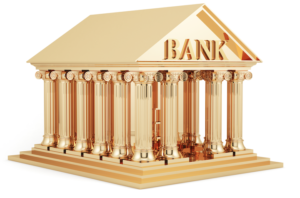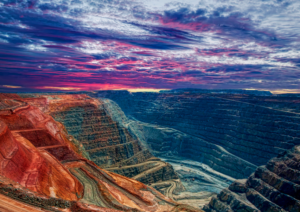Ethical banking started in response to educated consumers wanting assurance that their money is not being used to cause damage. Like recycling, taking shorter showers and buying your food from the local farmers market, it’s another way you can personally contribute to a sustainable future.
Inevitably, the devil is in the detail:
- Who decides what’s ethical?
- How do we ensure those with the ‘ethical’ badge are really doing the right thing?
- What’s the cost to the consumer?
- And the bottom line: which institutions could you bank with if you want to bank ethically?
I’ve done some research and summarized my findings in this post.
But before we begin, for the uninitiated (and that included me before I started this research): why bother with ethical banking in the first place?
Why go ethical?
As a consumer, it can feel like our individual impact is minuscule. We are each one of literally billions of people on this planet. Changing where you shop, what you buy and where you bank to send a message to ‘the powers that be’ may seem like a pointless exercise… but it’s not. Here’s why:
Our spending decisions drive change
Have you been following the Coles and Woollies milk saga? An organised campaign launched in May 2016 encouraged consumers to boycott the cheaper supermarket milk in favour of buying (slightly) more expensive branded milk to support our dairy farmers. The result? Aisles full of supermarket milk marked at a quarter of the price because they just couldn’t sell it.
Whether this will have a lasting positive impact for our ailing dairy industry is yet to be seen, but it’s an excellent example of how your spending decisions can drive changes even in a duopoly like Australia’s supermarket scene.
As my mum would say: vote with your feet.
You need to sleep well
Regardless of whether your decisions become a catalyst for a Mexican wave of change, you must make decisions in line with your personal ethics and beliefs. If you don’t do this, you will eventually feel the inevitable discomfort and, dare I say, shame that comes when your actions don’t align with your thoughts.
This is not about being righteous or waxing lyrical about your choices at every opportunity. The last thing anyone wants is to become the boring pedant (heard the joke about the Paleo dieter who does CrossFit and how they never shut up? #sorrynotsorry to all the Paleo CrossFitters…) It’s simply about having peace of mind because you are acting consistently with your beliefs.

It’s about being able to look your grandchildren in the eye
What makes a bank ethical?
Call me a cynic, but when I first heard the phrase ‘ethical banking’, I laughed out loud thinking that was possibly the best oxymoron I’d ever heard.
To me, ethical banking is on par with the concept of a mining company achieving ‘zero harm’. Surely it is literally impossible to do absolutely no harm at all – digging great holes in the Earth can only be classed as ‘harm’, no matter how fabulous the rehabilitation plan and how extensive the company’s subsidy of the surrounding community. Surely ‘net positive gain’ is a better and more honest aspiration for those that mine?
Likewise ‘ethical banking’ – to whose ethics do ‘they’ refer? Is it about the environment, corruption, social outcomes, wealth equality? Wouldn’t ‘banking to minimize harm’ be a better aim?
And don’t forget that we’re referring to institutions that make their money by lending imaginary cash to individuals and businesses alike. It’s not exactly an ethical practice to begin with, though it is a necessary one for our society. I think this quote sums the whole shebang up quite well:
“The modern banking system manufactures money out of nothing. The process is perhaps the most astounding piece of sleight-of-hand that was ever invented. Banking was conceived in inequity and born in sin… But if you want to continue to be slaves of the bankers and pay the cost of your own slavery, then let the bankers continue to create money and control credit .”
– Josiah Charles Stamp

A license to print money. Literally.
I digress…
Notwithstanding the obvious hurdles, the most common definition of ‘ethical’ relates to the environment and potential climate change impacts. In general, an ethical bank is one that does not lend money to, nor invest in, fossil fuels – specifically coal and gas.
The individual definitions used by various reporting organisations differs:
- Market Forces looks at fossil fuel investment only.
- Ethisphere takes a broader view, including things like anti-corruption measures in their definition.
- The Global Alliance for Banking on Values looks at ‘sustainable economic, social and environmental development’.
- BankTrack looks for banks that are having a ‘negative impact on people and planet’.
- Responsible Investment Association Australasia (RIAA) focuses on investment products and superannuation rather than banking, and expands its definition to include ‘environmental, social, governance (ESG) and ethical issues into the investment process of research, analysis, selection and monitoring of investments’.
The bottom line for you, the consumer? It’s up to you which definition you adhere to. Pick the organisation that assesses in alignment with your values.
What is the cost of ethical banking?
Try as I might, I could find no evidence that ethical banking was more expensive to the end consumer.
Logically, it should be – ethical banks must comply with all the same fiduciary standards that non-ethical banks do, and on top of that they need to do more compliance work to investigate the ethical standing and practices of those they plan to lend to and invest in. So, they have higher overheads, not to mention a smaller market of potential customers and investment opportunities. But it seems there’s no difference in pricing beyond what you already see in the banking sector.
The bottom line here is: banks will try to charge you fees regardless of their ethics standing – it’s your job as a consumer to seek options within your chosen bank that reduce your fees.

Your bank sees fees like this
However, if you choose to invest your superannuation in ethical options only, the returns may not be as great as a non-ethical choice depending on the economic climate. For example, ten years ago an ethical investor may be lamenting the double-figure growth stats being achieved in non-ethical funds. Today, they may be jumping for joy off the back of dismal mining performance. The good ol’ swings and roundabouts of investing.
Which Australian banks are the most ethical?
Oh, how I wish I had an easy answer for you. Unfortunately multiple rating sources creates disagreement. Case in point:
- According to Market Force, all of the Big 4 are invested in fossil fuels. In 2015, ANZ was the worst offender with nearly $16 billion invested; Westpac the lesser of known evils with $8.7 billion.
- According to Ethisphere, Westpac and NAB made the ‘World’s Most Ethical’ companies list in 2014 (as well as Teachers Mutual, the only other Australian bank to do so. These were three of only five banks on the world-wide list).
Hmmmm….

Apparently investing in holes like this does not preclude you from Ethisphere’s ‘World’s Most Ethical’ companies list
It seems like credit unions and smaller banks are the way to go – though that’s possibly less through design than simple market opportunities.
What comes next?
Download our Free Financial Resources
Find the right Money School Course for you
Get the Book: Money School, Become Financially Independent and Reclaim Your Life, Lacey Filipich
Got a question: Contact Us
Lacey Filipich is the co-founder and director of Money School. She helps parents raise financially savvy kids and helps adults get on top of their finances. Connect with her on LinkedIn and follow the Money School Facebook page to learn more.


Fantastic work Lacey – thanks for doing the leg work and putting together a beautifully written, easy to understand summary for us.
Thanks Bronwen! Glad it’s of use 🙂
We covered this on our social investment class over the weekend. This is something that I am really passionate about. What can do to make a difference with where our money is invested? Big questions and it doesn’t seem very overwhelming and so challenging to make any changes. I would pay for a course that would help me move easily to make better investments with my superannuation and go to a bank that has ethical practices. Look forward to leaning more about this subject
Case in point There is now only one bank left on that ethical listing and thats Teachers Mutual that has held it since 2014.
Using the dairy industry as an example of how to be ethical… irony doesn’t even begin to cover it
That’s an interesting interpretation. I was referring to the consumer pressure impact on pricing, not the dairy industry itself.
I want to find an ethical funds adviser. Can you help please?
Hi Gillian, I’m sorry we’re unable to help you with this one. We don’t have a database of advisors and don’t keep track of who could be considered ethical. We wish you plenty of luck in your quest to find the right one for you. Kind Regards, Lacey